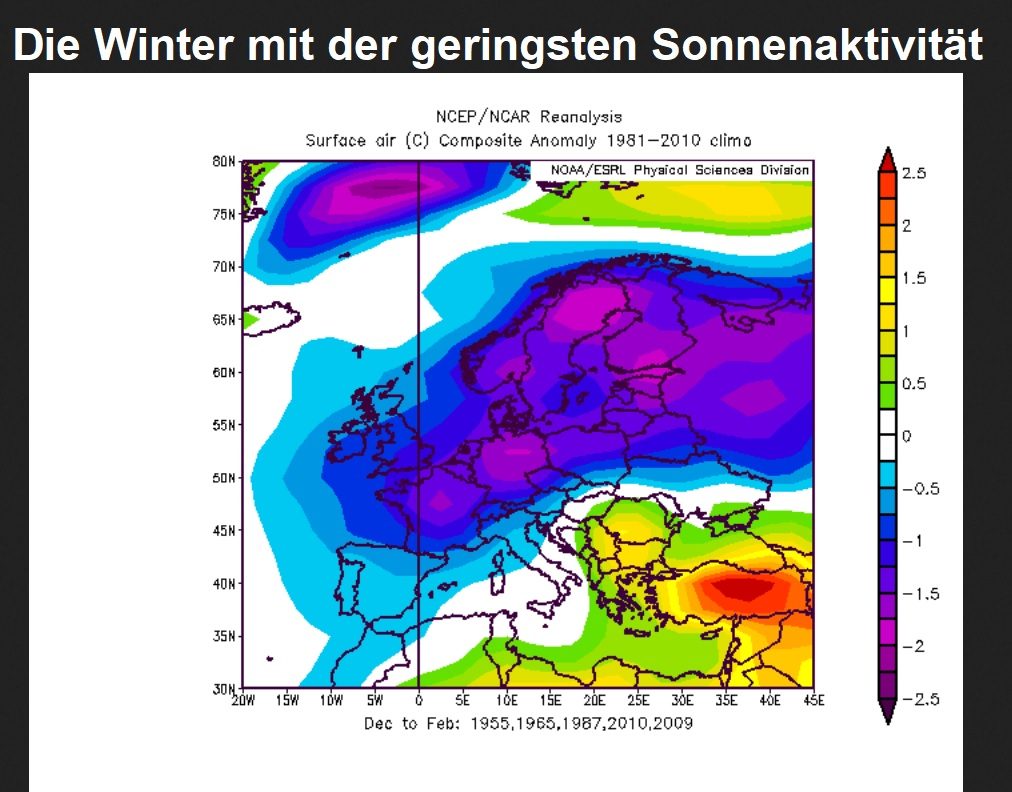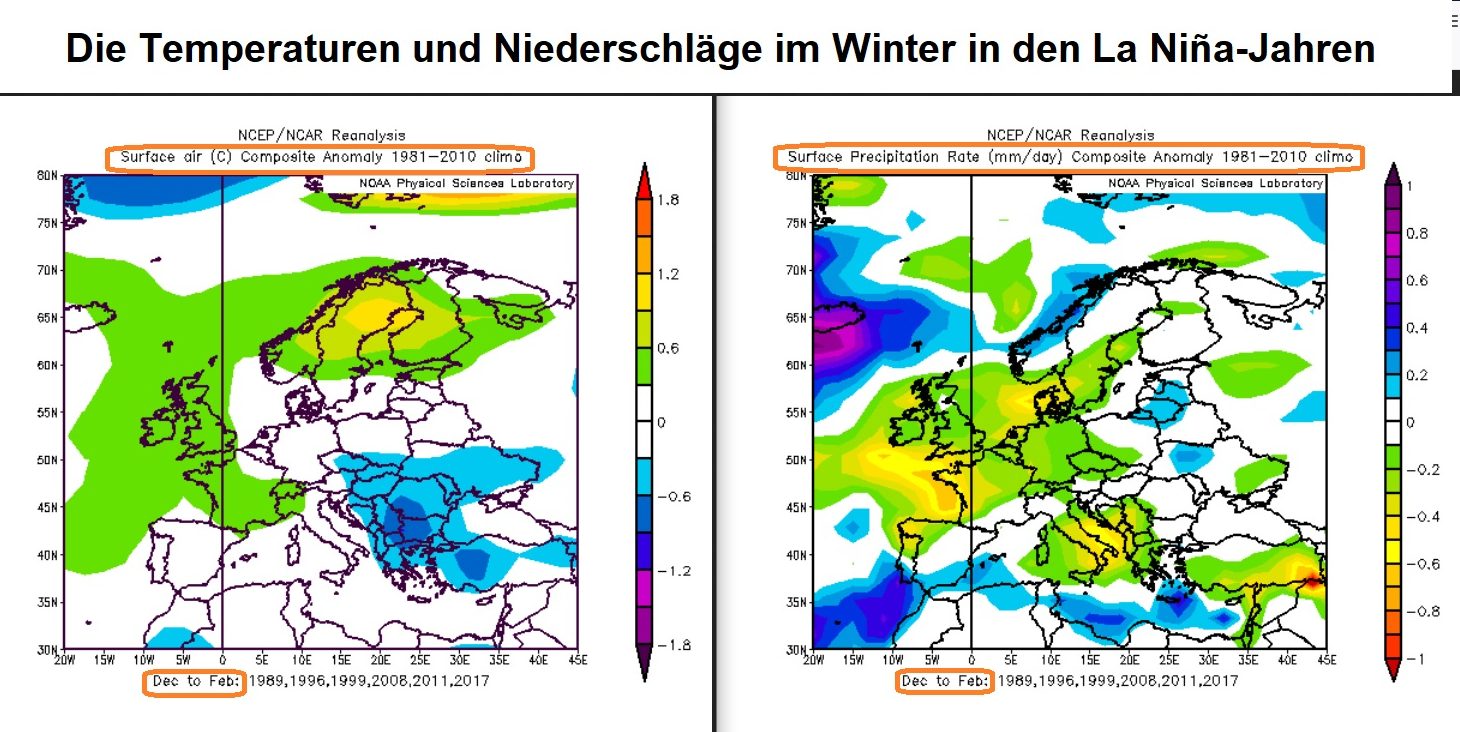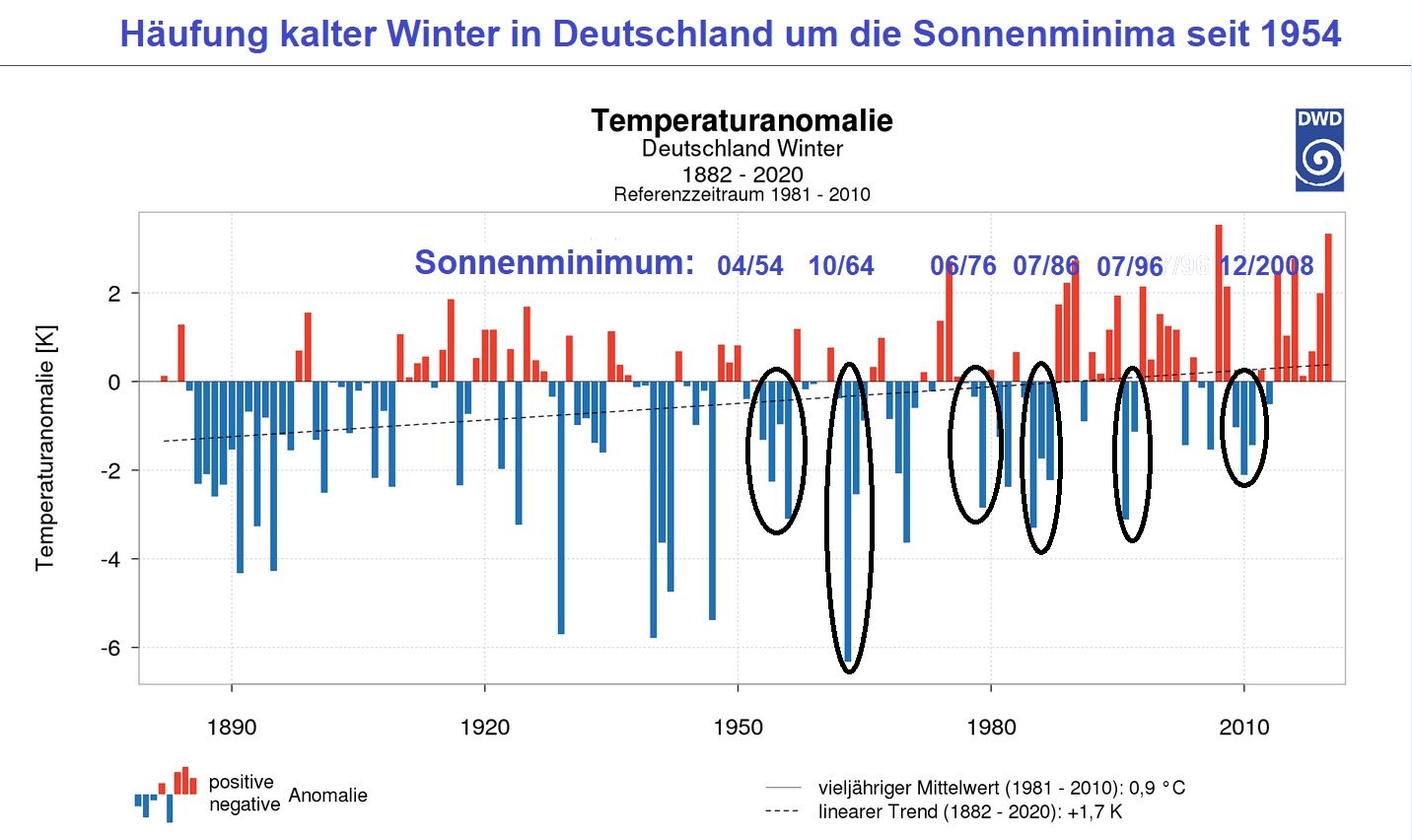SnowFan here reports on the latest winter forecasts for the 2020/21 Europe winter. History and statistics show Europe could be in for a frosty winter.
Currently a significant La Nina is shaping up, and history shows that these events in the Pacific have an impact on Europe’s winters:
The NOAA reanalysis above shows the temperature deviations (left) and for precipitation (right) from the WMO average 1981-2010 during the six La Niña years of winter in Europe. Large parts of Europe have average temperatures and precipitation is distributed differently, with Germany being slightly drier overall than the WMO average. Is a 2020/21 winter in Germany under La Niña conditions shaping up to have average temperatures and slightly less humidity?
Strong winter-solar correlation
A more important factor determining winter in Europe may be solar activity. Data from the German DWD national weather service since 1954 show a remarkable higher frequency of cold winters in times of low solar activity, such as we are now in the midst of.
The following chart shows the December-January-February cold temperature anomalies occurring in the times of low solar activity (circled):
After the current minimum of solar activity in December 2019, statistically it leads us to expect a crisp winter 2020/21 – not only in Germany. Source: DWD time series with supplements.
It could look like the chart below because the NOAA reanalysis shows the high statistical probability of cold winters in Europe during the weakest solar cycles after 1948. What follows is a chart showing the temperature anomalies for the winters occurring at times of low solar activity:

The winters in Europe since 1948 with the weakest solar activity so far have all been significantly colder than the 1981-2010 WMO climate average. The solar activity cycle ending in December 2019 was one of the weakest cycles ever since observations began. Source: NOAA reanalysis and long-term weather.
But with the different statistical approaches, one thing already seems to be clear: The winter 2020/21 will probably not be particularly mild in Europe…
Also IRI expects cool 2020/21 winter
Last message: IRI continues to expect a rather supercooled winter 2020/21 in Central Europe with slightly more precipitation than average.
Like in September 2020, the IRI October forecast of Columbia University in New York also predicts a slightly cooler winter 2020/21 with slightly increased precipitation over Central Europe. Source: IRI Seasonal Forecast
Thanks to SnowFan for this report.








This might be a good time to apply for a temporary relocation to Florida.
All those nice warm places like Orlando, or the Algarve, are off track with planes grounded.
Anyway you would not get back without quarantine.
And those lovely skiing resorts like Ishgl where the plague spread are all likely closed.
So no escape to beaches, or snow, just cold rain.
Now where is my brollie…
I hear this “Europe will have a cold winter”every year.Some day you will see another extreme harsh winter.But that will be the result of a wavy jetstream and the positioning of blocking highs.La Nina has close to zero influence on European winters.
[…] pandemic Long-term data show a recent acceleration in chemical and physical changes in the ocean Low Solar Activity Points To Colder Than Normal 2020/21 European Winter Major new project to study the “brain” of the human cell Maternal Exposure to Magnetic Field […]
[…] P. Gosselin, Oct 16, 2020 in […]
[…] Low Solar Activity Points To Colder Than Normal 2020/21 European Winter […]